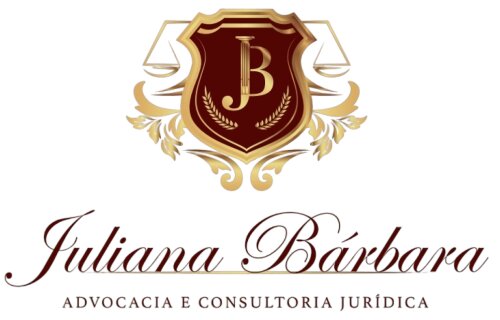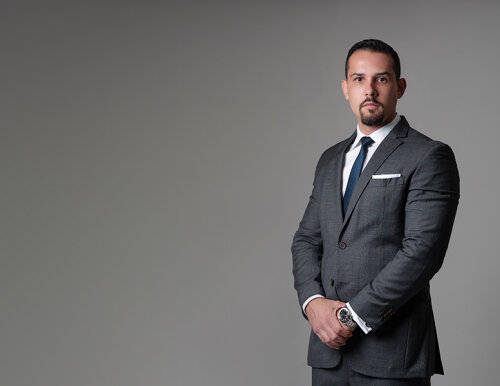Best Brokerage Lawyers in Brazil
Share your needs with us, get contacted by law firms.
Free. Takes 2 min.
Free Guide to Hiring a Real Estate Lawyer
Or refine your search by selecting a city:
List of the best lawyers in Brazil
About Brokerage Law in Brazil
Brokerage law in Brazil pertains to the rules, regulations, and legal norms governing the activities of brokers and brokerage companies. These laws regulate the professional conduct, responsibilities, and rights associated with brokering in various sectors, including real estate, securities, and commodities markets. Brokers play an intermediary role, facilitating transactions between buyers and sellers, and ensuring compliance with Brazilian standards. The cornerstone of brokerage law is to ensure transparency, fairness, and the protection of all parties involved in a brokerage transaction.
Why You May Need a Lawyer
There are numerous situations where individuals or businesses may require legal assistance in the brokerage field in Brazil:
- Disputes over commission agreements or payment structures between brokers and clients.
- Issues related to breach of contract in brokerage arrangements.
- Compliance with local and federal regulations for initiating and conducting brokerage operations.
- Representation in negotiations or disputes involving large or complex brokerage transactions.
- Legal advice on the formation and registration of brokerage firms under Brazilian law.
- Guidance on taxation issues related to brokerage income in Brazil.
- Resolving disputes involving allegations of unethical conduct or fraud by brokers.
Local Laws Overview
Key aspects of local legislation relevant to brokerage in Brazil include:
- The Real Estate Brokerage Law (Law No. 6,530/78) that governs real estate transactions, detailing broker qualifications, training, and ethical standards.
- The role of regulatory bodies like CVM (Comissão de Valores Mobiliários) that oversee security brokerage, ensuring integrity and compliance within financial markets.
- Provisions for civil liabilities in case of damages or losses resulting from brokerage activities.
- Requirements and processes for obtaining brokerage licenses, including educational prerequisites and professional certifications.
- Consumer protection laws that brokers need to adhere to when dealing with clients, ensuring fairness and transparency.
Frequently Asked Questions
1. What qualifications are required to become a broker in Brazil?
To become a broker in Brazil, one typically needs to complete relevant education, obtain professional certification, and be registered with the appropriate regulatory body such as COFECI for real estate or ANCORD for financial markets.
2. How are brokerage commissions regulated in Brazil?
The amount and structure of brokerage commissions can vary but are typically governed by specific contracts between the broker and their clients. There are regulatory guidelines to ensure these commissions are fair and transparent.
3. What are the primary responsibilities of a broker in Brazil?
A broker's responsibilities include acting in good faith, providing accurate information, facilitating negotiations, and ensuring compliance with all legal and regulatory standards.
4. How can I verify if a broker is licensed to operate in Brazil?
You can check the credentials of a broker through relevant regulatory bodies such as COFECI for real estate brokers or the CVM for financial brokers.
5. What should I do if I have a dispute with a broker in Brazil?
If you have a dispute with a broker, you may seek legal advice, attempt mediation, or file a complaint with the relevant regulatory authority.
6. Are there any specific laws for online brokerage services in Brazil?
Yes, online brokerage services must comply with general brokerage laws, as well as specific regulations on digital transactions and consumer protection in e-commerce.
7. Can foreign nationals act as brokers in Brazil?
Foreign nationals must meet specific legal and regulatory requirements, including obtaining authorization from the Brazilian authorities, to act as brokers.
8. What role does CVM play in securities brokerage?
The CVM is responsible for overseeing the securities market, ensuring compliance with regulations, and protecting investors' rights in Brazil.
9. How can brokers ensure ethical practices in their profession?
Brokers ensure ethical practices by adhering to professional codes of conduct, regulatory guidelines, and undergoing continuous education on ethical standards.
10. Is there a specific body overseeing real estate brokerage?
Yes, COFECI (Conselho Federal de Corretores de Imóveis) oversees real estate brokerage activities in Brazil, ensuring brokers meet legal and professional standards.
Additional Resources
For further information and assistance related to brokerage in Brazil, consider the following resources:
- COFECI: The Federal Council of Realtors provides guidelines and support for real estate brokers.
- CVM: The Securities and Exchange Commission regulates the securities markets and brokers.
- ANCORD: National Association of Brokers offers membership and resources for securities brokers.
- Procon: Consumer protection agency where clients can report unfair brokerage practices.
Next Steps
If you require legal assistance in brokerage, follow these steps:
- Identify and document the specific issue or legal need you have concerning brokerage activities.
- Research and contact a lawyer or law firm with special expertise in Brazilian brokerage law.
- Prepare all relevant documents and information to assist your legal consultant in understanding the issue.
- Discuss your situation with the lawyer to explore options, remedies, and prepare a plan of action.
- Follow through with the recommended legal procedures, keeping all communications and agreements documented for reference.
Lawzana helps you find the best lawyers and law firms in Brazil through a curated and pre-screened list of qualified legal professionals. Our platform offers rankings and detailed profiles of attorneys and law firms, allowing you to compare based on practice areas, including Brokerage, experience, and client feedback.
Each profile includes a description of the firm's areas of practice, client reviews, team members and partners, year of establishment, spoken languages, office locations, contact information, social media presence, and any published articles or resources. Most firms on our platform speak English and are experienced in both local and international legal matters.
Get a quote from top-rated law firms in Brazil — quickly, securely, and without unnecessary hassle.
Disclaimer:
The information provided on this page is for general informational purposes only and does not constitute legal advice. While we strive to ensure the accuracy and relevance of the content, legal information may change over time, and interpretations of the law can vary. You should always consult with a qualified legal professional for advice specific to your situation.
We disclaim all liability for actions taken or not taken based on the content of this page. If you believe any information is incorrect or outdated, please contact us, and we will review and update it where appropriate.
Browse brokerage law firms by city in Brazil
Refine your search by selecting a city.

















